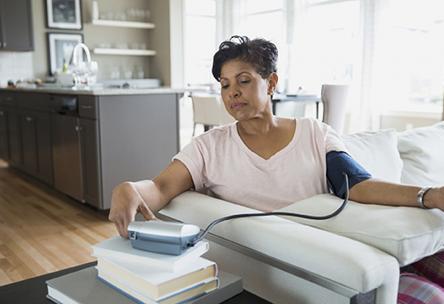Three steps to help you stop the “silent killer”

When nurses or doctors take your blood pressure, they are checking one of the most important signs of your health. Having high blood pressure can lead to serious problems if not treated, including damage to the heart and arteries.
Many people have high blood pressure and don’t know it. There are usually no symptoms. You may have heard that people with high blood pressure are nervous or feel tense, but that’s not true. You can have high blood pressure and feel calm and relaxed.
That’s why it’s so important to have your blood pressure checked at least once a year. Write down the results so you can compare them at your next checkup. Ask your doctor what your blood pressure should be. Your doctor may prescribe some medication or suggest lifestyle changes.
If your numbers suggest you have high blood pressure, or that you’re “on the high end of normal,” there are many things you can do to help lower your blood pressure. Even if you aren’t at risk for high blood pressure, these steps will help you stay well.
- Stay at a healthy weight. Being overweight puts a strain on your heart. Talk to your doctor about what your target weight should be and understand what the best way to achieve it is.
- Eat the right foods. A diet that is low in saturated fats and sodium, and high in fiber, is good for your heart. Go online or to the library to find out about the DASH diet, which can lower blood pressure. Snack on fruits, and limit added sugars.
- Be active. Exercise is good for your whole body, and it really helps to control blood pressure. Try to be active for 30 minutes a day, but start gradually if that’s too long at first. Take a brisk walk or use the stairs. Every bit of movement helps.
- 120/80 - The top number measures the pressure in your arteries when your heart beats. The bottom number measures the pressure in your arteries between heartbeats. The American Heart Association says 120/80 is “normal.” Ask your doctor what is normal for you.


